Passionate about finding out various ways and means of making the democratic governance deliver, Vinay Sahasrabuddhe had long back started reading about political parties and their evolution as a key democratic institution. His scholarly meanderings into the much relevant thematic of “Political Parties as Victims of Populism and Electoral Compulsions; A Quest for Systemic Solutions – With special reference to India” got recognized in the form of a Doctoral degree from University of Mumbai in 2009. Dr Maneesha Tikekar of the SIES College, Mumbai was his research guide.
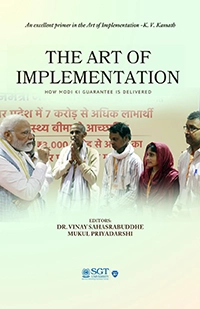
The Art of Implementation
2024
Franklin D. Roosevelt, 32nd president of United States of America, once remarked “The test of our progress is not whether we add more to the abundance of those who have much; it is whether we provide enough for those who have too little.” Undoubtedly when one of the oldest and largest democracies of the world, USA and India, are closer together than never before, our ideals and goals are also similar.
It is commonly being accepted that delivery of various government schemes has improved in India in last decade. There has been tangible growth in social sector and is visible on many social indices. Schemes like PM Jan Dhan Yojna, PM Ujjwala Yojna, Swachh Bharat Abhiyan, Aayushman Bharat PM – Jan Arogya Yojana, PM Awas Yojna, Aspiration Block Program, and Jal Jeevan Mission have been exemplary in terms of their scale, robust design, delivery efficiency and social impact.
Many similar schemes were earlier attempted in India and in more than one form. Successive governments, and trillions of rupees repeatedly failed to make a dent into living conditions of poor. Not just in India, most countries and international organisations struggle with implementation of government policies and schemes. In sharp contrast to this perennial problem, India’s recent success in implementing its flagship social welfare schemes has been quite astonishing.
Hence, it is imperative that an attempt is made to understand the building blocks, which have turned into efficient machinery, especially with the use of new technologies, leading to improved last mile delivery. While even the World Bank launched its ‘Science of Delivery’ to overcome obstacles in global development, we believe that what was achieved in a country as complex as India is more of an ‘Art’ than mere science. Eventually, what has emerged out of the studied and structured analysis of the factors that went behind the success of different programs during last decade is a book, in the form of an anthology of articles by senior leaders, officials and practitioners, aptly named as ‘The Art of Implementation.’
The book is an objective analysis of the programs and their outcomes, beyond rhetoric and prejudice. It has been meticulously structured into three distinct sections, namely Leadership, Governance & Policy, and Delivery Architecture. Each section serves as a comprehensive exploration of key facets integral to effective governance. It brought out the commonalities across the program implementation, which has been called the ART framework of implementation.
The ART framework, with its three distinct but interconnected stages—Abstract, Realistic, and Transparent—provides a structured approach to program implementation. By analysing these stages, we can gain valuable insights into how the government under Prime Minister Narendra Modi in its two terms, planed and implemented its social-economic programs. Understanding these layers helps in identifying best practices, optimizing implementation strategies, and ultimately achieving the desired outcomes of large government programs.
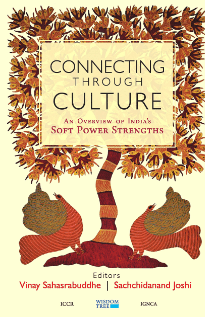
Connecting Through Culture (ed.)
2022
This in-depth and evocative analysis, innovatively conceptualised by the Editors, both of whom happen to be scholar-practitioners themselves, brings together some of the most credible names from diverse fields, including music, dance, theatre, cinema, textile, cuisines and traditional wisdom. It successfully encapsulates the essence of India’s cultural strengths, both as independent streams and within the global context. A rare volume that captures the rich and diverse spectrum of Indian cultural aspects at one place, as also their role in India’s quintessential connect with the hearts and spirits of humankind, this anthology is a treasure for scholars and practitioners of culture and diplomacy.
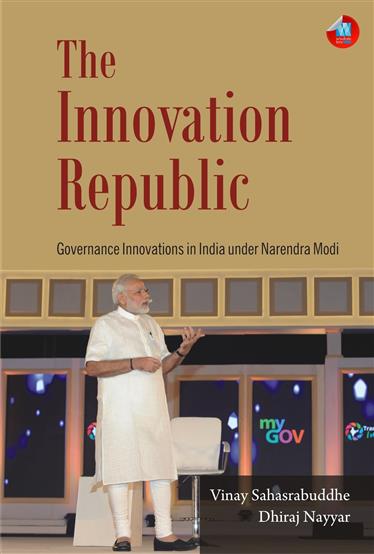
The Innovation Republic: Governance Innovations in India Under Narendra Modi
2018
Innovation is the main driver of transformation in the twenty-first century. Governments, though, are not commonly associated with the creativity, nimbleness and risk-taking ability required to innovate. However, since assuming the office of prime minister of India in May 2014, Narendra Modi has strived hard to introduce the culture of innovation and creativity in governance. This book tells the stories of seventeen important innovations in the systems of governance, some of which make use of breakthrough technology, others involve the creation of new institutions, some involve a restructuring of processes, but all of which bring greater efficiency and effectiveness to the business of government. The ‘governnovations’ have helped the cause of transparency and accountability, like Government’s e-Market platform; they have enabled smart communication in the form of Mann ki Baat; there are institutional innovations like NITI Aayog and Invest India; an innovation like the Dalit VC fund is about social responsibility; some celebrate Indian culture while projecting Indian soft power, like the International Yoga Day; most of all, there are several which have contributed to easing the life of the average Indian—whether BHIM or Unnat Jyoti or Railway Twitter Sewa—which ought to be the aspiration and goal of every government.
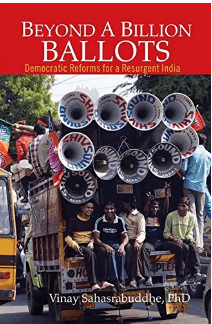
Beyond a Billion Ballots,
2013
His book “Beyond A Billion Ballots”, is based on his Ph.D. thesis and was published at the hands of Shri Narendra Modi in June 2013. This book unfurls the reforms agenda for liberating political parties from the trap of populist politics through a set of key systemic changes in India’s democratic infrastructure. Coming out from the keen observations of a trainer of political practitioners, this work is being considered as seminal having the potency to catalyse Indian Republic 2.0.
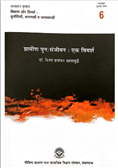
ग्रामीण पुनः संजीवन: एक विमर्श
2011
यह पुस्तक डॉ विनय प्रभाकर सहस्रबुद्धे द्वारा गोविन्द बल्लभ पंत सामाजिक विज्ञान संसथान, प्रयागराज में व्याख्यान श्रंखला विकास और विमर्श: चुनौतियाँ, समस्याएं व् संभावनाएं में दिया व्याख्यान है।
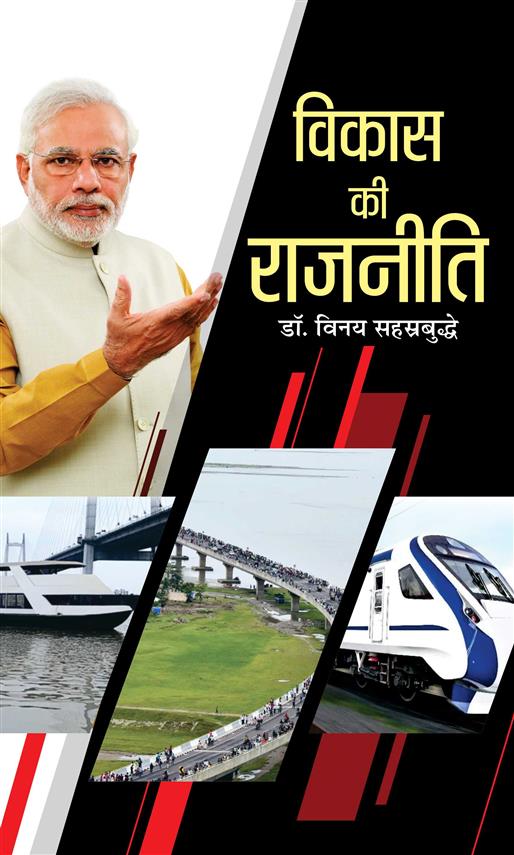
विकास की राजनीति
2019
भारतीय जनता पार्टी देश की एक और राजनीतिक पार्टी भर नहीं है। अपने निर्माण व विकास के वर्षों में भाजपा खुद को पार्टी विद डिफरेंस (भिन्न किस्म का दल) के रूप में वर्णित कर गर्व महसूस करती रही है।
एक के बाद एक आई दोनों वाजपेयी सरकारों ने यह प्रभावी तरीके से स्थापित कर दिया कि गठबंधन सरकारें टिकाऊ साबित हो सकती हैं, गैर-कांग्रेस सरकारें सफलतापूर्वक चल सकती हैं और इससे भी महत्त्वपूर्ण यह कि ऐसी सरकारें शासन में महत्त्वपूर्ण ढंग से योगदान दे सकती हैं, गवर्नेन्स का मूल्यवर्धन कर सकती हैं। किसी प्रकार के प्रच्छन्न या गोपनीय गैर-इरादों से मुक्त होने के कारण अपने राष्ट्रीय एजेंडे में भाजपा विकास का केंद्रीय महत्त्व सुनिश्चित कर सकी, जिसके मूल में मजबूत अर्थव्यवस्था थी। केंद्र और विभिन्न प्रदेशों में भाजपा सरकारों का प्रदर्शन साफ तौर पर अन्य राष्ट्रीय या क्षेत्रीय दलों से निर्विवाद कहीं अधिक बेहतर रहा है।
यह पुस्तक उस मूल्य संवर्धन (वैल्यू एडिशन) का निचोड़ है, जो भाजपा ने भारतीय लोकतांत्रिक राजनीति में अपूर्व योगदान द्वारा किया है। भाजपा ने परिश्रमपूर्वक और पूरी दक्षता से भारतीयों के जीवन में गुणात्मक रूपांतरण करने का काम किया है। भारतीय राजनीतिक विमर्श में ‘विकास की राजनीति’ यह शब्दावली केवल स्थापित करने का ही नहीं, बल्कि उसे पूरी प्रामाणिकता से जमीन पर उतारने का श्रेय भी भाजपा को जाता है। प्रामाणिक इरादे, सोच-समझकर बनाई नीतियाँ और कार्यान्वयन के प्रभावी तौर-तरीके इन तीन मुद्दों के आधार पर इस ‘विकास की राजनीति’ को अपनाया गया है।
Aahe Loktantra Tareehee
2011
A compilation of his selected articles on issues concerning democratic governance, in Marathi; named “Aahe Lok-tantra Tarihee” (In spite of Democracy) was published in 2011.
Sangathan Shastra (Science of Organisation) (ed.)
1998, 2003 and 2007
In 1997 he edited thoughtfully written invited articles by knowledgeable authors on basics of Science of Human Organisations. It analyses the approach required and skills to be employed to bring people together and form an enduring organisation. The book, known as ‘संघटन शास्त्र’ became very popular with three editions already out. A Hindi translation of the same is also now available.
Nivedak Manoos (ed.)
1998
In 1998 he co-edited Nivadak Manoos (Selected articles from Weekly Manoos) a compilation of articles previously published in celebrated Marathi weekly Manoos. Published in 1999, this volume later received Govt Maharashtra Award for Best Literary Work.
Nivedak Manoos (ed.)
1998
In 1998 he co-edited Nivadak Manoos (Selected articles from Weekly Manoos) a compilation of articles previously published in celebrated Marathi weekly Manoos. Published in 1999, this volume later received Govt Maharashtra Award for Best Literary Work.
Sarvajanik Karyakarta: Manorachna ani Vyavahar (ed.)
1993
Rambhau Mhalgi Prabodhini (RMP) has published three books edited by Dr.Sahasrabuddhe. The first one was an anthology of English articles on the vexed issue of democracy and accountability, titled as ‘Accountability of Elected Representatives’ (1990), while the other two were essentially on Science of Organisation. In 1984, he edited a compilation essay on the mindset and public conduct of a social worker. This book was named as ‘सार्वजनिक कार्यकर्ता: मनोरचना आणि व्यवहार”.
Sarvajanik Karyakarta: Manorachna ani Vyavahar (ed.)
1993
Rambhau Mhalgi Prabodhini (RMP) has published three books edited by Dr.Sahasrabuddhe. The first one was an anthology of English articles on the vexed issue of democracy and accountability, titled as ‘Accountability of Elected Representatives’ (1990), while the other two were essentially on Science of Organisation. In 1984, he edited a compilation essay on the mindset and public conduct of a social worker. This book was named as ‘सार्वजनिक कार्यकर्ता: मनोरचना आणि व्यवहार”.
Accountability of People’s Representatives (ed.)
1991
Ekaki Purvancha
1988
Dr. Vinay Sahasrabuddhe’s first Marathi book Ekaki Purvanchal(Isolated North-East India) was published in 1988 and that happened to be the first Marathi book, analysing the complex socio-political conditions in the North-East India.
Yashwant (ed.)
1988
In 1988, He co-Edited a book on the life and mission of Late Prof Yashwant Kelkar, one of the founding fathers of the Akhil Bharatiya Vidyarthi Parishad ( ABVP). This Marathi book, namely ‘Yashwant’ was published by Vidyarthi Nishit.
- ENGLISH
-

The Art of Implementation
2024
Franklin D. Roosevelt, 32nd president of United States of America, once remarked “The test of our progress is not whether we add more to the abundance of those who have much; it is whether we provide enough for those who have too little.” Undoubtedly when one of the oldest and largest democracies of the world, USA and India, are closer together than never before, our ideals and goals are also similar.It is commonly being accepted that delivery of various government schemes has improved in India in last decade. There has been tangible growth in social sector and is visible on many social indices. Schemes like PM Jan Dhan Yojna, PM Ujjwala Yojna, Swachh Bharat Abhiyan, Aayushman Bharat PM – Jan Arogya Yojana, PM Awas Yojna, Aspiration Block Program, and Jal Jeevan Mission have been exemplary in terms of their scale, robust design, delivery efficiency and social impact.
Many similar schemes were earlier attempted in India and in more than one form. Successive governments, and trillions of rupees repeatedly failed to make a dent into living conditions of poor. Not just in India, most countries and international organisations struggle with implementation of government policies and schemes. In sharp contrast to this perennial problem, India’s recent success in implementing its flagship social welfare schemes has been quite astonishing.
Hence, it is imperative that an attempt is made to understand the building blocks, which have turned into efficient machinery, especially with the use of new technologies, leading to improved last mile delivery. While even the World Bank launched its ‘Science of Delivery’ to overcome obstacles in global development, we believe that what was achieved in a country as complex as India is more of an ‘Art’ than mere science. Eventually, what has emerged out of the studied and structured analysis of the factors that went behind the success of different programs during last decade is a book, in the form of an anthology of articles by senior leaders, officials and practitioners, aptly named as ‘The Art of Implementation.’
The book is an objective analysis of the programs and their outcomes, beyond rhetoric and prejudice. It has been meticulously structured into three distinct sections, namely Leadership, Governance & Policy, and Delivery Architecture. Each section serves as a comprehensive exploration of key facets integral to effective governance. It brought out the commonalities across the program implementation, which has been called the ART framework of implementation.
The ART framework, with its three distinct but interconnected stages—Abstract, Realistic, and Transparent—provides a structured approach to program implementation. By analysing these stages, we can gain valuable insights into how the government under Prime Minister Narendra Modi in its two terms, planed and implemented its social-economic programs. Understanding these layers helps in identifying best practices, optimizing implementation strategies, and ultimately achieving the desired outcomes of large government programs.

Connecting Through Culture (ed.)
2022
This in-depth and evocative analysis, innovatively conceptualised by the Editors, both of whom happen to be scholar-practitioners themselves, brings together some of the most credible names from diverse fields, including music, dance, theatre, cinema, textile, cuisines and traditional wisdom. It successfully encapsulates the essence of India’s cultural strengths, both as independent streams and within the global context. A rare volume that captures the rich and diverse spectrum of Indian cultural aspects at one place, as also their role in India’s quintessential connect with the hearts and spirits of humankind, this anthology is a treasure for scholars and practitioners of culture and diplomacy.
The Innovation Republic: Governance Innovations in India Under Narendra Modi
2018
Innovation is the main driver of transformation in the twenty-first century. Governments, though, are not commonly associated with the creativity, nimbleness and risk-taking ability required to innovate. However, since assuming the office of prime minister of India in May 2014, Narendra Modi has strived hard to introduce the culture of innovation and creativity in governance. This book tells the stories of seventeen important innovations in the systems of governance, some of which make use of breakthrough technology, others involve the creation of new institutions, some involve a restructuring of processes, but all of which bring greater efficiency and effectiveness to the business of government. The ‘governnovations’ have helped the cause of transparency and accountability, like Government’s e-Market platform; they have enabled smart communication in the form of Mann ki Baat; there are institutional innovations like NITI Aayog and Invest India; an innovation like the Dalit VC fund is about social responsibility; some celebrate Indian culture while projecting Indian soft power, like the International Yoga Day; most of all, there are several which have contributed to easing the life of the average Indian—whether BHIM or Unnat Jyoti or Railway Twitter Sewa—which ought to be the aspiration and goal of every government.
Beyond a Billion Ballots,
2013
His book “Beyond A Billion Ballots”, is based on his Ph.D. thesis and was published at the hands of Shri Narendra Modi in June 2013. This book unfurls the reforms agenda for liberating political parties from the trap of populist politics through a set of key systemic changes in India’s democratic infrastructure. Coming out from the keen observations of a trainer of political practitioners, this work is being considered as seminal having the potency to catalyse Indian Republic 2.0. - HINDI
-

ग्रामीण पुनः संजीवन: एक विमर्श
2011
यह पुस्तक डॉ विनय प्रभाकर सहस्रबुद्धे द्वारा गोविन्द बल्लभ पंत सामाजिक विज्ञान संसथान, प्रयागराज में व्याख्यान श्रंखला विकास और विमर्श: चुनौतियाँ, समस्याएं व् संभावनाएं में दिया व्याख्यान है।
विकास की राजनीति
2019
भारतीय जनता पार्टी देश की एक और राजनीतिक पार्टी भर नहीं है। अपने निर्माण व विकास के वर्षों में भाजपा खुद को पार्टी विद डिफरेंस (भिन्न किस्म का दल) के रूप में वर्णित कर गर्व महसूस करती रही है।एक के बाद एक आई दोनों वाजपेयी सरकारों ने यह प्रभावी तरीके से स्थापित कर दिया कि गठबंधन सरकारें टिकाऊ साबित हो सकती हैं, गैर-कांग्रेस सरकारें सफलतापूर्वक चल सकती हैं और इससे भी महत्त्वपूर्ण यह कि ऐसी सरकारें शासन में महत्त्वपूर्ण ढंग से योगदान दे सकती हैं, गवर्नेन्स का मूल्यवर्धन कर सकती हैं। किसी प्रकार के प्रच्छन्न या गोपनीय गैर-इरादों से मुक्त होने के कारण अपने राष्ट्रीय एजेंडे में भाजपा विकास का केंद्रीय महत्त्व सुनिश्चित कर सकी, जिसके मूल में मजबूत अर्थव्यवस्था थी। केंद्र और विभिन्न प्रदेशों में भाजपा सरकारों का प्रदर्शन साफ तौर पर अन्य राष्ट्रीय या क्षेत्रीय दलों से निर्विवाद कहीं अधिक बेहतर रहा है।
यह पुस्तक उस मूल्य संवर्धन (वैल्यू एडिशन) का निचोड़ है, जो भाजपा ने भारतीय लोकतांत्रिक राजनीति में अपूर्व योगदान द्वारा किया है। भाजपा ने परिश्रमपूर्वक और पूरी दक्षता से भारतीयों के जीवन में गुणात्मक रूपांतरण करने का काम किया है। भारतीय राजनीतिक विमर्श में ‘विकास की राजनीति’ यह शब्दावली केवल स्थापित करने का ही नहीं, बल्कि उसे पूरी प्रामाणिकता से जमीन पर उतारने का श्रेय भी भाजपा को जाता है। प्रामाणिक इरादे, सोच-समझकर बनाई नीतियाँ और कार्यान्वयन के प्रभावी तौर-तरीके इन तीन मुद्दों के आधार पर इस ‘विकास की राजनीति’ को अपनाया गया है।
- MARATHI
-
Aahe Loktantra Tareehee
2011
A compilation of his selected articles on issues concerning democratic governance, in Marathi; named “Aahe Lok-tantra Tarihee” (In spite of Democracy) was published in 2011.Sangathan Shastra (Science of Organisation) (ed.)
1998, 2003 and 2007
In 1997 he edited thoughtfully written invited articles by knowledgeable authors on basics of Science of Human Organisations. It analyses the approach required and skills to be employed to bring people together and form an enduring organisation. The book, known as ‘संघटन शास्त्र’ became very popular with three editions already out. A Hindi translation of the same is also now available.Nivedak Manoos (ed.)
1998
In 1998 he co-edited Nivadak Manoos (Selected articles from Weekly Manoos) a compilation of articles previously published in celebrated Marathi weekly Manoos. Published in 1999, this volume later received Govt Maharashtra Award for Best Literary Work.Nivedak Manoos (ed.)
1998
In 1998 he co-edited Nivadak Manoos (Selected articles from Weekly Manoos) a compilation of articles previously published in celebrated Marathi weekly Manoos. Published in 1999, this volume later received Govt Maharashtra Award for Best Literary Work.Sarvajanik Karyakarta: Manorachna ani Vyavahar (ed.)
1993
Rambhau Mhalgi Prabodhini (RMP) has published three books edited by Dr.Sahasrabuddhe. The first one was an anthology of English articles on the vexed issue of democracy and accountability, titled as ‘Accountability of Elected Representatives’ (1990), while the other two were essentially on Science of Organisation. In 1984, he edited a compilation essay on the mindset and public conduct of a social worker. This book was named as ‘सार्वजनिक कार्यकर्ता: मनोरचना आणि व्यवहार”.Sarvajanik Karyakarta: Manorachna ani Vyavahar (ed.)
1993
Rambhau Mhalgi Prabodhini (RMP) has published three books edited by Dr.Sahasrabuddhe. The first one was an anthology of English articles on the vexed issue of democracy and accountability, titled as ‘Accountability of Elected Representatives’ (1990), while the other two were essentially on Science of Organisation. In 1984, he edited a compilation essay on the mindset and public conduct of a social worker. This book was named as ‘सार्वजनिक कार्यकर्ता: मनोरचना आणि व्यवहार”.Accountability of People’s Representatives (ed.)
1991Ekaki Purvancha
1988
Dr. Vinay Sahasrabuddhe’s first Marathi book Ekaki Purvanchal(Isolated North-East India) was published in 1988 and that happened to be the first Marathi book, analysing the complex socio-political conditions in the North-East India.Yashwant (ed.)
1988
In 1988, He co-Edited a book on the life and mission of Late Prof Yashwant Kelkar, one of the founding fathers of the Akhil Bharatiya Vidyarthi Parishad ( ABVP). This Marathi book, namely ‘Yashwant’ was published by Vidyarthi Nishit.
